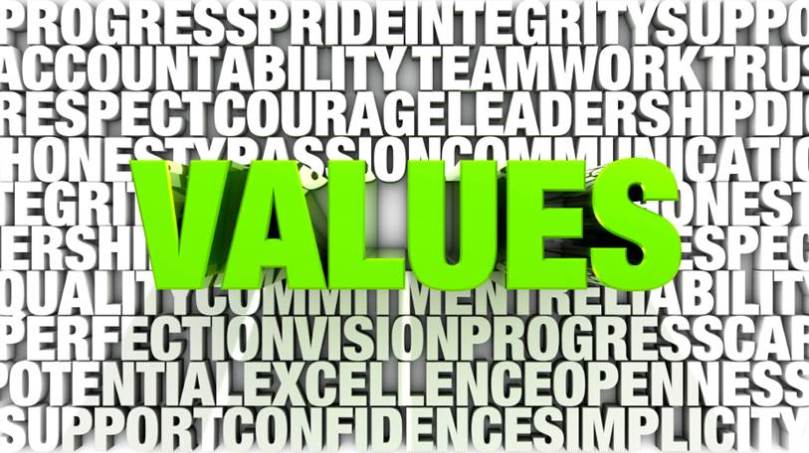It’s been hard not to think a lot about values during these days following the election. Martin Luther King Jr. wrote that “If we are to go forward, we must go back and rediscover those precious values…all reality hinges on moral foundations…” With those moral foundations so profoundly shaken, can Americans still believe in shared values?
Difficult times test people’s values, and the election proved to be one of those times. Many of us trusted that shared values of love, respect, kindness and honesty would guide people’s decisions. But as I wrote several weeks ago, people often vote with their toddler brains, not their adult brains. Competing values, or alternative interpretations of values, prevailed.
Values can be organized a couple of different ways. We can talk about core vs. satellite values, with core values being the ones you are most strongly attached to, the ones you would fight or die for; and satellite values being ones that are more loosely held and amenable to change. We can also define values as being either instrumental or terminal. Instrumental values are those personal characteristics and traits that guide us, such as honesty and courage, while terminal values are those related to goals or outcomes like having a job that will allow you to support your family.
People’s core values usually don’t change much over time; they are central to who you are. But what if you have to choose between upholding one or another of your core values? Then what? That collection of core principles must be subject to some sort of hierarchy of importance. Is having enough money more important than religion? Some people make that choice when deciding whether to work on the sabbath. Is spending time with your family more highly valued than your career? Many of us have to make that choice.
In much the same way, if we look at values using the instrumental/terminal construct, there might come a time when you perceive that a choice is necessary between upholding an instrumental value, such as respect for others or yourself, and a terminal value, such as getting the job you want.
What do we do when we are tested like that? I could say that I would never sacrifice my core values of respect for others, belief in religious freedom, and teaching our children loving kindness — no matter which other core value was at risk. But perhaps not everyone feels they have that luxury. Or maybe they just see it through a different lens.
When they cast their votes, did people think that they could temporarily set aside the values of respect, knowledge, inclusiveness and truth, and get them back later? Did they realize that they were making that trade-off for only a promise of something better, not a guarantee? What happens when we are tested again?
This might be a good time for all of us to consider the constitution. Not the U.S. Constitution, but our personal constitutions. A personal constitution is a written clarification of values, a way of identifying and prioritizing core and satellite values. Your constitution can be just a paragraph that describes in your own words what you believe in and what it means to live by your values. That statement, says Stephen Covey, “becomes the criterion by which you measure everything else in your life.” It’s your guidebook for challenging times and moral tests.
If we are to go forward, we must go back and rediscover those precious values. Start with the constitution, your constitution. Let it be your foundation for the next four years and beyond.

Jill, you have hit the nail on the head. That’s my conundrum with family and friends who voted for DT. Did you never have the core values I thought you did, or, what could possibly make you abandon them? Still taking it very personally as the mother of a son with autism (whose flapping was mocked) and a daughter who I never want any person to believe they can sexually assault with impunity or otherwise treat inequitably.
I have been struggling with the same thing. Trying to figure out if my privilege blinds me to others’ concerns or if they just don’t care about the same things as I do.
[…] year ago, in the aftermath of the election, I wrote here about values, attempting to make sense of what had happened in our country. From my perspective, […]